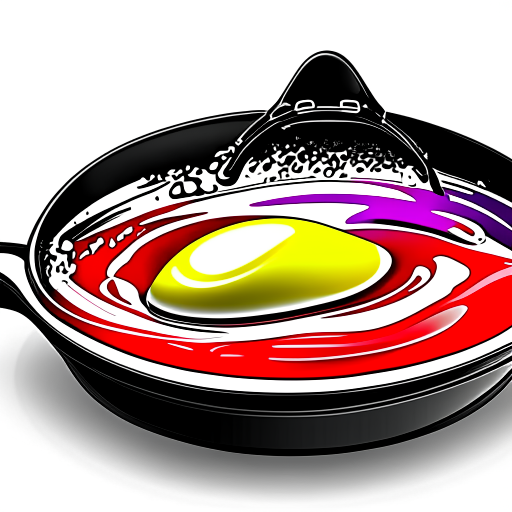In this article, we will explore the fascinating world of calorie counting and provide you with an array of helpful tips and tools. Prioritizing your well-being is paramount, and at Tastepan, we understand the importance of nourishing your body without compromising on flavor. Whether you’re looking to shed a few pounds or simply maintain a healthy lifestyle, our collection of nutritious and delicious recipes, along with dietary tips and expert advice, will make healthy eating a breeze. Get ready to embark on a journey towards a balanced and fulfilling lifestyle as we delve into the intricacies of calorie counting and equip you with the necessary knowledge and resources to achieve your health goals.

What is calorie counting?
Definition of calorie counting
Calorie counting is the practice of tracking and monitoring the number of calories consumed in your daily diet. It involves keeping a record of the caloric content of the food and beverages you consume throughout the day.
Why people count calories
Many individuals count calories for various reasons. Primarily, it is a popular strategy for weight management and weight loss. By understanding and controlling their calorie intake, people can create a calorie deficit, which leads to weight loss. Additionally, calorie counting can create awareness of eating habits, help identify problem areas in the diet, and allow for better portion control.
Benefits of calorie counting
Aids in weight management
Calorie counting is an effective tool for weight management as it allows you to have a clear understanding of your daily calorie consumption. By tracking and monitoring your calorie intake, you can adjust your eating habits to ensure you are consuming an appropriate amount of calories for your weight goals.
Creates awareness of eating habits
Keeping a calorie count helps you become more aware of what you eat and how it impacts your overall health. By actively tracking and monitoring your food choices, you develop a deeper understanding of the nutritional content of different foods and how they affect your body.
Helps identify problem areas in diet
Calorie counting helps identify problematic eating habits and areas in your diet that may be hindering your health goals. By analyzing your calorie intake, you can pinpoint areas where you may be consuming excess calories, such as sugary snacks or high-fat foods. This awareness allows you to make necessary adjustments to your diet.
Allows for better portion control
Counting calories promotes better portion control as it encourages mindful eating. By tracking your caloric intake, you become more conscious of portion sizes and are more likely to choose appropriate serving sizes. This can help prevent overeating and contribute to weight management.

How to count calories effectively
Setting a daily calorie goal
To count calories effectively, it is necessary to set a daily calorie goal based on your weight goals and activity level. Consulting with a healthcare professional or registered dietitian can provide guidance in determining an appropriate calorie target for you.
Reading food labels
Reading food labels is an essential skill when counting calories. Pay attention to serving sizes, the calorie content per serving, and the nutritional information provided. This allows you to accurately track and monitor your calorie intake.
Using calorie tracking apps
Calorie tracking apps are a popular and convenient way to count calories effectively. These apps provide a database of food items with their respective calorie content, making it easier to track your daily intake. Additionally, they often include features like barcode scanning and meal planning tools.
Keeping a food diary
Keeping a food diary can be another effective method for counting calories. By recording everything you eat and drink in a journal or using a mobile app, you can be more aware of your eating habits and hold yourself accountable for your choices.
Determining your daily calorie needs
Factors that influence calorie needs
Several factors influence an individual’s daily calorie needs, including age, gender, weight, height, and activity level. The basal metabolic rate (BMR) is the number of calories the body needs to maintain basic physiological functions at rest. Physical activity level, including exercise and daily activity, also plays a role in determining calorie needs.
Calculating Basal Metabolic Rate (BMR)
The BMR can be calculated using various formulas available online or through professional guidance. These equations take into account factors such as age, gender, weight, and height to estimate the number of calories your body needs at rest. Once you have your estimated BMR, you can then adjust it based on your activity level.
Adjusting for physical activity level
To determine your total daily calorie needs, you need to consider your activity level. Multiply your BMR by an activity factor to estimate the number of calories burned through physical activity. This will give you a more accurate estimation of your daily calorie needs.

Understanding macronutrients
What are macronutrients?
Macronutrients are the three major nutrient groups that provide energy in the form of calories: carbohydrates, proteins, and fats. Carbohydrates are the body’s primary source of energy, proteins are essential for tissue repair and growth, and fats provide energy and aid in hormone production.
Calorie content of macronutrients
Each macronutrient has a different calorie content per gram. Carbohydrates and proteins contain approximately four calories per gram, while fats contain about nine calories per gram. By understanding the calorie content of macronutrients, you can effectively balance your daily intake to meet your dietary goals.
Importance of balancing macronutrient intake
Balancing macronutrient intake is crucial for overall health and optimal nutrition. Consuming a balanced ratio of carbohydrates, proteins, and fats can provide the necessary energy for bodily functions, promote satiety, and support muscle growth and repair.
Effective calorie counting techniques
Meal planning
Meal planning is an effective technique for calorie counting. By planning and prepping your meals in advance, you have greater control over the ingredients and portion sizes, making it easier to track your calorie intake accurately.
Cooking at home
Cooking at home allows you to have full control over the ingredients and cooking methods used in your meals. By preparing meals at home, you can make healthier choices, control portion sizes, and accurately track your calorie intake.
Eating mindfully
Practicing mindful eating involves paying attention to the present moment while eating, being aware of the taste, texture, and satisfaction level of each bite. Eating mindfully can help prevent overeating and make you more conscious of your food choices and portion sizes.
Managing eating out and social events
When eating out or attending social events, it can be challenging to count calories accurately. However, there are strategies to manage these situations. Choose healthy menu options, ask for dressings or sauces on the side, share meals, and prioritize portion control.
Tips for accurate calorie counting
Measuring portions correctly
Accurately measuring portions is crucial when counting calories. Use measuring cups, spoons, and a kitchen scale to ensure you are consuming the correct serving sizes. Eyeballing portions often leads to over or underestimating the calorie content of a meal.
Accounting for cooking methods
Cooking methods can significantly affect the calorie content of a meal. Frying, adding excessive oils, or using high-calorie sauces can increase the overall calorie count. Be mindful of your cooking methods and opt for healthy alternatives, such as grilling or baking, to reduce calorie intake.
Being aware of hidden calories
Hidden calories are often found in condiments, dressings, sugary beverages, and processed snacks. Pay attention to these hidden sources of calories and consider healthier alternatives or reducing the amounts used to maintain accurate calorie counting.
Checking for serving sizes
When counting calories, it’s essential to check the recommended serving sizes on food labels. Many packaged products contain multiple servings, leading to a higher caloric intake if the entire package is consumed. Be mindful and adjust your portion sizes accordingly.
Addressing challenges in calorie counting
Dealing with non-packaged foods
Counting calories for non-packaged foods can be challenging, but it is not impossible. Utilize online resources, recipe databases, or consult with a nutritionist to estimate the calorie content of homemade or restaurant meals. Develop an understanding of portion sizes and the caloric content of individual ingredients to make more accurate estimates.
Eating at restaurants
Eating at restaurants can pose challenges for calorie counting, as portion sizes and ingredients may not be extremely clear. However, many restaurants offer nutritional information online or on their menu, allowing you to make informed choices. Opt for healthier options, ask for modifications, and practice portion control.
Overcoming emotional eating
Emotional eating can hinder calorie counting efforts. It is essential to develop alternative coping mechanisms for dealing with emotions rather than turning to food. Seek professional guidance or support to address emotional eating habits and establish healthy strategies to manage emotions.
Tools to assist in calorie counting
Calorie counting websites
Numerous calorie counting websites provide extensive databases of food items, their calorie content, and nutritional information. These websites often include additional features such as meal planning tools, recipe suggestions, and community forums for support and guidance.
Smartphone apps
Smartphone apps cater to various dietary needs and goals, making them convenient tools for counting calories. These apps provide databases of food items, allow users to track their intake, set goals, and often offer additional features like barcode scanning, meal reminders, and progress tracking.
Food scales and measuring cups
Food scales and measuring cups are essential tools for accurately measuring portion sizes. These tools help ensure you are consuming the recommended serving sizes, making your calorie counting more precise and effective.
Pedometers and fitness trackers
Pedometers and fitness trackers can be helpful tools to incorporate physical activity into your overall calorie counting strategy. These devices track your steps, distance, and calories burned, allowing you to monitor your activity level and adjust your calorie goals accordingly.
Combining calorie counting with other strategies
Incorporating exercise
Combining calorie counting with regular exercise can enhance weight management and overall health. Exercise helps increase calorie expenditure, contributing to creating a calorie deficit and promoting weight loss. Consult with a fitness professional to develop an exercise plan that complements your calorie counting goals.
Practicing portion control
Portion control is a vital component of effective calorie counting. By understanding appropriate portion sizes and practicing mindful eating, you can ensure you are consuming the right amount of calories for your goals. Using smaller plates and bowls, measuring portions, and listening to your body’s hunger cues can help with portion control.
Using mindful eating techniques
Mindful eating involves being present and fully engaged with the eating experience. By paying attention to hunger and fullness cues, savoring each bite, and eating slowly, you can prevent overeating and make more conscious food choices. Incorporating mindful eating techniques into your daily routine can enhance your calorie counting efforts.
Seeking professional guidance
If you are struggling with your calorie counting efforts or have specific dietary needs, seeking professional guidance from a registered dietitian or nutritionist can be immensely helpful. They can provide personalized advice, create meal plans tailored to your needs, and address any concerns or challenges you may encounter.
By incorporating these techniques, tools, and strategies, you can effectively count calories to meet your weight management and dietary goals. Remember, calorie counting is just one aspect of a healthy lifestyle, and it is essential to prioritize overall well-being by including a variety of nutritious foods, engaging in regular physical activity, and seeking professional guidance when needed.

